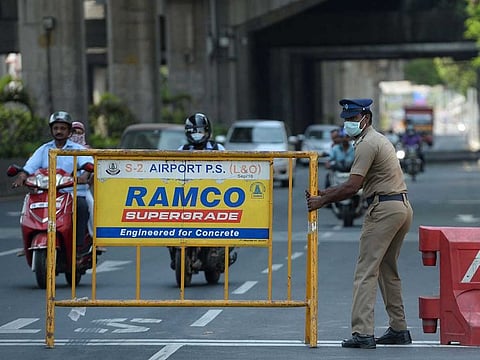COVID-19: India faces challenges on lockdown
Coronavirus: Government must activate health measures and keep food supply lines open

Indian Prime Minister Narendra Modi’s announcement on Tuesday to shut down a nation of 1.3 billion people is the boldest move taken by any government in their war against COVID-19. The scale of this lockdown — shutting down an entire nation of 36 states and territories spanning over 3.2 million square kilometres for three weeks — is so huge that it overshadows similar steps by China.
Most health experts agree that shutting down large territories for an extended period is painful but necessary. Lockdowns keep people indoors and help in breaking the chain, effectively slowing down the virus transmission. They cite the example of Wuhan in China where the infection rate has come down zero. Lockdowns alone will not win this war against the novel coronavirus. Mike Ryan, emergency health expert of the World Health Organisation warned that locking down cities is not enough. Nations shutting down without activating health measures, including finding and isolating infected people, will fail and the disease will jump back when the lockdowns are lifted.
Italy perhaps is the best example. The country announced massive restrictions on March 9, shutting down its fashion capital of Milan and tourist hotspots. Nevertheless, Italy remains the sick man of Europe. With close to 7,000 dead and nearly 70,000 sick, there is no indication of any progress in containing the virus. So lockdown, though important, is not the magic bullet.
While the Modi government’s move is necessary, there are serious challenges facing India, especially the ability to sustain this prolonged shutdown. On day one, Wednesday, Indian media reported widespread disruption of supplies of milk, medicines and vegetables among others as states sealed borders, cutting off freight corridors. While the federal government invoked disaster management laws, there is reportedly confusion among the lower-level officials who are unclear about what constitutes essential services. Grocery chains are scrambling to keep supply lines intact as vendors are facing logistical challenges. These challenges can only become bigger.
In addition, officials have to find ways to feed the urban poor who must work every day to bring food to the table. During this lockdown, the poor living in large cities will struggle to feed their families. Moreover, the economic consequences of this prolonged lockdown are likely to be colossal and immensely painful. There will be widespread job losses and disruptions at a scale that might require government intervention, similar to what is being done in other countries that have set stimulus packages to help the economy.



